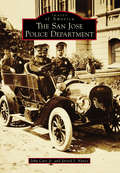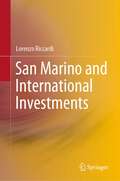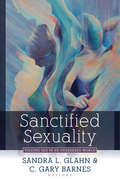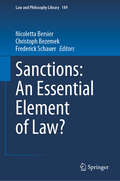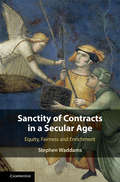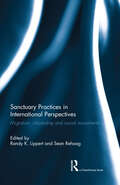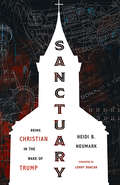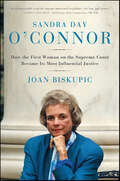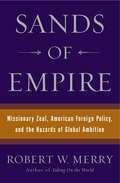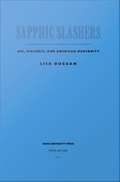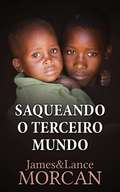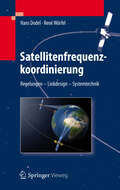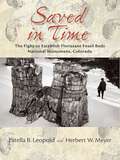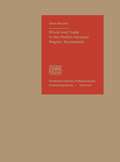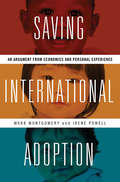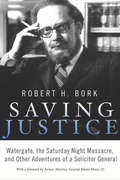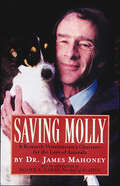- Table View
- List View
San Jose Police Department, The (Images of America)
by Jarrod J. Nunes John Carr Jr.Originally known as San Jose de Guadalupe, San Jose was ruled by Mexico until 1848, when, after the Mexican-American War, California joined the United States of America. In 1849, the newly elected government appointed a chief of police, and the San Jose Police Department was born. Its mission has been to respond to the distinctive needs of the community from the early agricultural age to today's high technology age. The San Jose Police Department has been a leader in law enforcement technology and training and is considered a model for modern police departments. Today, with a thousand sworn officers and 200 support personnel, the San Jose Police Department serves over a million citizens in the city and polices an area of over 180 square miles. The wonderful photographs compiled over the department's history illustrate the efforts of the hundreds of men and women who built the San Jose Police Department into one of the premier law enforcement agencies in the United States.
San Marino and International Investments
by Lorenzo RiccardiThis book seeks to promote investment opportunities in a global context, given San Marino’s advantageous tax and corporate system. After introducing readers to the country’s historical, geographical and political background, it focuses on current economic trends, business practices and the main institutions for economic development. In turn, the book illustrates San Marino’s unique international status, which supports its active membership in numerous international organizations. Additionally, it reports on the country’s ties with the world’s largest economies. These ties are chiefly characterized by international treaties and Double Tax Agreements (DTAs), which are also analyzed. In closing, the book shares insights into other small European countries’ dealings with San Marino (Andorra, Lichtenstein and Monaco).
Sanctified Sexuality: Valuing Sex in an Oversexed World
by Sandra GlahnExpert biblical and practical advice for handling today's most challenging sexual issuesAlthough modern culture constantly changes its views on sexuality, God's design for sexuality remains the same.Bringing together twenty-five expert contributors in relevant fields of study, Gary Barnes and Sandra Glahn address the most important and controversial areas of sexuality that Christians face today. From a scriptural perspective and with an irenic tone, the contributors address issues such as:The theology of the human bodyMale and female in the Genesis creation accountsAbortionCelibacySexuality in marriageContraceptionInfertilityCohabitationDivorce and remarriageSame-sex attractionGender dysphoriaAn ideal handbook for pastors, counselors, instructors, and students, Sanctified Sexuality provides solid answers and prudent advice for the many questions Christians encounter on a daily basis.
Sanctions, Accountability and Governance in a Globalised World
by Jeremy Farrall Kim RubensteinThis book is the first in a series examining how public law and international law intersect in five thematic areas of global significance: sanctions, global health, environment, movement of people and security. Until recently, international and public law have mainly overlapped in discussions on how international law is implemented domestically. This series explores the complex interactions that occur when legal regimes intersect, merge or collide. Sanctions, Accountability and Governance in a Globalised World discusses legal principles which cross the international law/domestic public law divide. What tensions emerge from efforts to apply and enforce law across diverse jurisdictions? Can we ultimately only fill in or fall between the cracks or is there some greater potential for law in the engagement? This book provides insights into international, constitutional and administrative law, indicating the way these intersect, creating a valuable resource for students, academics and practitioners in the field.
Sanctions: An Essential Element of Law? (Law and Philosophy Library #149)
by Frederick Schauer Christoph Bezemek Nicoletta BersierThe volume is dedicated to the concept of sanctions and to the reassessment of its interrelation with the concept of law. It does not seem that long ago that &“law&” and &“sanctions&” were thought of as necessarily interrelated. &“Every Law is a command&”, we read in Austin&’s &‘Province of Jurisprudence Determined&’; a particular command, however, in &“that the party to whom it is directed is liable to evil from the other, in case he [does not] comply&”. And &“[t]he evil which will probably be incurred in case a command be disobeyed […] is frequently called a sanction&”. H. L. A. Hart&’s critique of Austin&’s &“command theory of law&” successfully drove a wedge into the interrelation of &“law and &“sanctions&”; so successful, in fact, that it caused some scholars to part with the idea of &“force&” underlying the concept of law altogether and others to emphatically protest what they perceived as a rash move to discard one of the core elements of law. The debate still is on.
Sanctity of Contracts in a Secular Age: Equity, Fairness and Enrichment
by Stephen WaddamsThe phrase 'sanctity of contracts' implies that contracts should always be strictly enforced. But when this objective is relentlessly implemented ruinous burdens are sometimes imposed on one party and extravagant enrichments conferred on the other. Despite recognition of the need to control highly unreasonable contracts in various particular contexts, there remain many instances in which the courts have refused to modify unreasonable contracts, sometimes with extravagant results that are avowedly 'grotesque'. In the computer age assent may be inferred from a click on a screen in the absence of any real agreement to the terms, which are often very burdensome to the user. In this book, arguments are advanced in favour of recognition of a general judicial power to relieve against highly unreasonable contracts, not only for the benefit of the disadvantaged party, but for the avoidance of unjust enrichment, and for the avoidance of anomalous gaps in the law.
Sanctuary Practices in International Perspectives: Migration, Citizenship and Social Movements
by Randy K. Lippert Sean RehaagSanctuary Practices in Perspective examines the diverse, complex, and mutating practice of providing sanctuary to asylum-seekers. The ancient tradition of church sanctuary underwent a revival in the late 1970s. Christian churches began providing physical protection to migrants living without legal status and who were facing imminent deportation in church buildings and communities: first in the United Kingdom and then in the United States, Canada, and several other European countries. These practices arose amidst a dramatic increase in the number of asylum-seekers arriving in the West, and a corresponding escalation in national and international efforts to discourage and control their arrival through myriad threats of deportation and other means. This collection of papers by prominent US, European, and Canadian scholars is the first to place contemporary sanctuary practices in international, theoretical, and historical perspective. Moving beyond isolated case studies of sanctuary activities and movements, it reveals sanctuary as a far more complex, regional, theoretically-rich, and institutionally adaptable set of practices.
Sanctuary: Being Christian in the Wake of Trump
by Heidi Neumark&“Through the pages of this book, I invite you into various spaces of sanctuary—not as places of retreat, but for the deepened resistance, vision, and transformation that these days, and the gospel, require.&” Throughout her nearly forty years in ministry, Heidi Neumark has strived to make communities of faith into sanctuaries amid the turmoils of life. Now, with the social and political upheaval of the years since Donald Trump was elected president, Neumark believes the true Christian calling is to live out a counterpoint to today&’s prevailing spirits of exclusion and hatred. Using her own bilingual, multicultural congregation as a model, she moves through the seasons of the church calendar to reflect on what it looks like to live out essential Christian convictions in community with others. Sanctuary is an amplifier for the many voices crying out against policies and rhetoric that are cruel, dehumanizing, and dangerous. Neumark begins each chapter with a quote from Donald Trump that she defies and dismantles with the power of her own stories—anecdotes about offering shelter for queer youth in her city, supporting immigrants and asylum-seekers being harassed by ICE, and embracing her church&’s diversity with a Guadalupe celebration, to name a few. Timely, but also timeless, this book speaks to the deep wounds of this era, inflicted before and during the Trump presidency, which will remain long past its end.
Sandra Day O'Connor: How the First Woman on the Supreme Court Became Its Most Influential Justice
by Joan Biskupic“Sandra Day O’Connor takes you behind the closed doors of the Supreme Court to reveal how Justice O’Connor helped craft landmark decisions on abortion, affirmative action, and a host of other critical issues. Joan Biskupic has broken new ground in reporting on O’Connor’s life and historic role on the high court. This lively, fast-paced account will make people rethink how they view this extraordinary woman and her fellow justices. An indispensable read for anyone interested in politics, the law, and power as exercised by one of the most fascinating women of our time.” -Andrea MitchellSandra Day O'Connor, America's first woman justice, became the axis on which the Supreme Court turned. She was called the most powerful woman in America, and it was often said that to gauge the direction of American law, one need look only to O'Connor's vote. Then, just one year short of a quarter century on the bench, she surprised her colleagues and the nation by announcing her retirement.Drawing on information from once-private papers of the justices, hundreds of interviews with legal and political insiders, and the insight gained from nearly two decades of covering the Supreme Court, Joan Biskupic examines O'Connor's remarkable career, providing an in-depth account of her transformation from tentative jurist to confident architect of American law. The portrait that emerges is of a complex and multifaceted woman: lawyer, politician, legislator, and justice, as well as wife, mother, A-list society hostess, and competitive athlete. To all appearances, she was the polite lady in pearls, handbag on her arm. But in the back rooms of politics and the law, she was a determined, focused strategist. O'Connor was the feminist who, rather than rebel against the male-dominated system, worked from within -- and succeeded.As Biskupic demonstrates, Justice O'Connor became much more than a "first." During her twenty-four-year tenure, she wrote the decisions on some of the most controversial social battles of our time. O'Connor's tie-breaking opinions on issues such as abortion rights, affirmative action, the death penalty, and religious freedom will have a lasting effect far into the future. O'Connor also cast one of the five votes that cut off the Florida recounts and allowed George W. Bush to take the White House in the 2000 contested presidential election. With an eye to the American people and a keen sense of public attitudes, she worked behind the scenes to shape the law and transform the legal standards by which future cases will be decided.From O'Connor's isolated upbringing on the Lazy B ranch in Arizona through her time as a state legislator to her rise as a justice -- along the way confronting her own personal challenges and crises, including breast cancer -- Biskupic presents a vivid, astute depiction of the justice -- and of the woman beneath the black robe. In so doing, Sandra Day O'Connor also provides an unprecedented look inside the exclusive, famously secretive High Court.
Sandra Day O'Connor: Justice for All (Women of Our Time)
by Beverly GhermanFrom the Book Jacket: Sandra Day O'Connor is one of the most influential-and controversial-women of today. In 1981, she was the first woman named to the United States Supreme Court, and since then, her rulings have helped to shape and interpret the laws of our nation. From her childhood on an Arizona ranch to her days as a young lawyer, Justice O'Connor has always fought for what she believed in: legal representation for the poor, clear mental health laws, and fair working conditions for men and women. Her opinions are not always popular, but Justice O'Connor continues to live by the words she tells the young people she meets: "The individual can make things happen." Praise for the Women of Our Time® series: "A series of uniform excellence." -Bulletin of the Center for Children's Books Ages 7-11
Sandra Day O'Connor: U. S. Supreme Court Justice
by Dennis AbramsFrom an early age, Sandra Day O'Connor challenged the traditional gender role assigned to women. Growing up on the Lazy B Ranch in the Southwest, she could mend a fence, ride a horse, shoot a rifle, and drive a tractor by the time she was eight years old. Though in the top 10 of her Stanford Law class--and only one of five women--O'Connor was unable to find a position at any law firm because of her sex. Undeterred, she opened her own law practice. After entering politics, she was the first female majority leader in the Arizona State Senate before becoming a justice on the U. S. Court of Appeals for the Ninth Circuit. In 1981, she ascended to the U. S. Supreme Court as the first female associate justice, appointed by President Ronald Reagan. Sandra Day O'Connor: U. S. Supreme Court Justice examines her life and the decisions she made while serving on the nation's highest court.
Sands of Empire: Missionary Zeal, American Foreign Policy, and the Hazards of Global Ambition
by Robert W. MerryVeteran political journalist and award-winning author Robert W. Merry examines the misguided concepts that have fueled American foreign policy since the end of the Cold War. The emergence in the George W. Bush administration of America as Crusader State, bent on remaking the world in its preferred image, is dangerous and self-defeating, he points out. Moreover, these grand-scale flights of interventionism, regime change, and the use of pre-emptive armed force are without precedent in American history. Merry offers a spirited description of a powerful political core whose ideas have replaced conservative reservations about utopian visions -- these neocons who "embrace a brave new world in which American exceptionalism holds sway," imagining that others around the globe can be made to abandon their cultures in favor of our ideals. He traces the strains of Wilsonism that have now merged into an adventurous and hazardous foreign policy, particularly as described by William Kristol, Francis Fukuyama, Max Boot, and Paul Wolfowitz, among others. He examines the challenge of Samuel Huntington's supposition that the clash of civilizations defines present and future world conflict. And he rejects the notion of The New York Times's Thomas L. Friedman that America is not only the world's role model for globally integrated free-market capitalism, but that it has a responsibility to foster, support, and sustain globalization worldwide. From the first president Bush to Clinton to the second Bush presidency, the United States has compromised its global leadership, endangered its security, and failed to meet the standard of justified intervention, Merry suggests. The country must reset its global strategies to protect its interests and the West's, to maintain stability in strategic areas, and to fight radical threats, with arms if necessary. For anything less than these necessities, American blood should remain in American veins.
Sanierung von Natursteinen: Erfassen - Sanieren - Recht
by Michael Stahr Klaus-Peter Radermacher Klaus-Michael Rohrwacher Lars RohrwacherDas Werk soll Schadensmöglichkeiten an natürlichen Bauteilen erkennen lassen, Möglichkeiten zur Sanierung konstruktiv und wirtschaftlich erfassen und technologische Verfahren aufzeigen. Ein historisch geprägter Teil soll die berufliche Entwicklung über Jahrhunderte illustrieren und die alte und wiedererkannte Entwicklung der Natursteine erfassen. In einem juristischen Teil sind die rechtlichen Betrachtungsweisen aufzuzeigen.
Sapphic Slashers: Sex, Violence, and American Modernity
by Lisa DugganOn a winter day in 1892, in the broad daylight of downtown Memphis, Tennessee, a middle class woman named Alice Mitchell slashed the throat of her lover, Freda Ward, killing her instantly. Local, national, and international newspapers, medical and scientific publications, and popular fiction writers all clamored to cover the ensuing "girl lovers" murder trial. Lisa Duggan locates in this sensationalized event the emergence of the lesbian in U. S. mass culture and shows how newly "modern" notions of normality and morality that arose from such cases still haunt and distort lesbian and gay politics to the present day. Situating this story alongside simultaneously circulating lynching narratives (and its resistant versions, such as those of Memphis antilynching activist Ida B. Wells) Duggan reveals how stories of sex and violence were crucial to the development of American modernity. While careful to point out the differences between the public reigns of terror that led to many lynchings and the rarer instances of the murder of one woman by another privately motivated woman, Duggan asserts that dominant versions of both sets of stories contributed to the marginalization of African Americans and women while solidifying a distinctly white, male, heterosexual form of American citizenship. Having explored the role of turn-of-the-century print media--and in particular their tendency toward sensationalism--Duggan moves next to a review of sexology literature and to novels, most notably Radclyffe Hall's The Well of Loneliness. Sapphic Slashers concludes with two appendices, one of which presents a detailed summary of Ward's murder, the trial, and Mitchell's eventual institutionalization. The other presents transcriptions of letters exchanged between the two women prior to the crime. Combining cultural history, feminist and queer theory, narrative analysis, and compelling storytelling, Sapphic Slashers provides the first history of the emergence of the lesbian in twentieth-century mass culture.
Saqueando o Terceiro Mundo: Como a Elite Global Afundou as Nações Pobres num Mar de Débitos
by Makoto Yamamoto James Morcan Lance MorcanSaqueando o Terceiro Mundo é dedicado aos empobrecidos nos lugares esquecidos de todo o mundo. O livro questiona se instituições como o Banco Mundial, o Fundo Monetário Internacional, a Agência dos Estados Unidos para o Desenvolvimento Internacional e outras grandes organizações de ajuda internacional mais ajudam do que prejudicam as pessoas mais pobres do mundo. Este livro analisa também se os pacotes de auxílio por essas organizações são genuínos ou se são golpes destinados a subjugar os países do Terceiro Mundo. Ele expõe a cultura da corrupção dentro das organizações mencionadas e a arrogância com que elas tratam os seus ‘clientes’ – os países subdesenvolvidos. Os Morcan revelam um plano nefasto correndo em segredo, em que a ‘generosidade’ oferecida pelas organizações de ajuda internacional em prol do desenvolvimento e do auxílio, do caso dos desastres naturais, vem com sérias condicionantes. Seriam elas amarras planejadas para extorquir as nações mais vulneráveis? O leitor também será lembrado de que os assassinos econômicos, popularizados no best-seller Confissões de um Assassino Econômico, de John Perkins, ainda estão vivos e na ativa – principalmente na África. Os autores foram motivados por uma incômoda estatística: 21 mil pessoas morrem de fome todos os dias. É uma pessoa a cada quatro segundos! Mais repugnante é o fato de que essas mortes são desnecessárias, dado que há riqueza mais do que suficiente no mundo inteiro para que todos os países tenham pelo menos as necessidades básicas supridas, e mais do que suficiente para que o Terceiro Mundo se sustente organicamente. Ao chegar ao fim do livro, você verá que há tanta riqueza no Terceiro Mundo quanto no Primeiro. Na verdade, termos como ‘Terceiro Mundo’ e ‘nações empobrecidas’ são essencialmente errôneas, pois implicam que a riqueza e os recursos são limitados nesses lugar
Satellitenfrequenzkoordinierung
by Hans Dodel René WörfelFunksysteme bilden zunehmend die Grundlage von Kommunikation, privat ebenso wie in Industrie und Wirtschaft. Von WLAN bis zur Satellitenkommunikation müssen die Kommunikations-, Navigations- und Rundfunksatelliten und ihre Bodenanlagen national und international regulatorisch koordiniert werden. Das Buch beschreibt anschaulich das Prozedere einer Funkanmeldung, erörtert Beispiele von Satellitenprojekten und zeigt Wege auf, wie das endliche Spektrum effektiv genutzt werden kann, damit auch in Zukunft weitere Systeme zugelassen werden können.
Saved in Time: The Fight to Establish Florissant Fossil Beds National Monument, Colorado
by Estella B. Leopold Herbert W. MeyerIn the summer of 1969, a federal district court in Denver, Colorado, heard arguments in one of the nation&’s first explicitly environmental cases, in which the Defenders of Florissant, Inc. opposed real estate interests intent on developing lands containing an extraordinary set of ancient fossils. This book, the first account of the fight to preserve the Florissant fossil beds, tells a story of environmental activism that remains little known more than forty years after the coalition&’s victory. The principal author, Estella Leopold, was a major participant in the process.
Saving Animals: Multispecies Ecologies of Rescue and Care
by Elan AbrellA fascinating and unprecedented ethnography of animal sanctuaries in the United States In the past three decades, animal rights advocates have established everything from elephant sanctuaries in Africa to shelters that rehabilitate animals used in medical testing, to homes for farmed animals, abandoned pets, and entertainment animals that have outlived their &“usefulness.&” Saving Animals is the first major ethnography to focus on the ethical issues animating the establishment of such places, where animals who have been mistreated or destined for slaughter are allowed to live out their lives simply being animals. Based on fieldwork at animal rescue facilities across the United States, Elan Abrell asks what &“saving,&” &“caring for,&” and &“sanctuary&” actually mean. He considers sanctuaries as laboratories where caregivers conceive and implement new models of caring for and relating to animals. He explores the ethical decision making around sanctuary efforts to unmake property-based human–animal relations by creating spaces in which humans interact with animals as autonomous subjects. Saving Animals illustrates how caregivers and animals respond by cocreating new human–animal ecologies adapted to the material and social conditions of the Anthropocene.Bridging anthropology with animal studies and political philosophy, Saving Animals asks us to imagine less harmful modes of existence in a troubled world where both animals and humans seek sanctuary.
Saving Emma: A Novel
by Allen EskensA lawyer's race to reveal a wrongful conviction collides with the dark shadow of a murder in his own home in this propulsive and perfectly-plotted thriller from "one of our best crime writers at the top of his game" (William Kent Krueger, New York Times bestselling author). When Boady Sanden first receives the case of Elijah Matthews, he&’s certain there&’s not much he can do. Elijah, who believes himself to be a prophet, has been locked up in a psychiatric hospital for the past four years, convicted of brutally murdering the pastor of a megachurch. But as a law professor working for the Innocence Project, Boady agrees to look into Elijah&’s file. When he does, he is alarmed to find threads that lead back to the death of his colleague and friend, Ben Pruitt, a man shot to death four years earlier in Boady&’s own home. Ben&’s daughter, Emma, has lived with Boady and Boady&’s wife Dee ever since that awful night. Now fourteen years old, Emma has been growing distant, and soon makes a fateful choice that takes her far from the safety of her godparents. Desperate to bring her home, and to free an innocent man, Boady must do all he can to investigate Elijah&’s case while fighting to save the family he has deeply come to love. Written with energy, propulsion, and his characteristic pathos and insight, Eskens delivers another pitch-perfect legal thriller that reveals a twisted murder and explores faith, love, family, and redemption along the way. "Ambitious, absorbing, and deeply satisfying."―Kirkus Reviews (starred review) "Eskens brilliantly combines legal and personal drama." ―Publishers Weekly (starred review) "Superb . . . another Eskens novel to be savored." ―South Florida Sun-Sentinel
Saving Five: A Memoir of Hope
by Amanda Nguyen'Amanda's story underscores the lasting power of speaking your truth, building a movement, and never losing sight of your dreams' Melinda French GatesA brave and imaginative memoir by the Nobel Peace Prize nominee Amanda Nguyen, detailing her healing journey and ground-breaking activism in the aftermath of her rape at Harvard.At a Harvard fraternity party in 2013, the trajectory of Amanda Nguyen's life was changed forever when she was raped.The American-born child of Vietnamese refugees, Nguyen had long dreamed of attending Harvard, and it had become a place of refuge from a childhood filled with turmoil and trauma. Determined to not let her rape derail the life she'd worked so hard to create, she opted for her rape kit to be filed under Jane Doe, knowing that an active court case tied to her name could hurt her odds of working for NASA after graduation, a goal she'd been working toward for years.But she was shocked to learn this choice meant she had only six months to take action before the state of Massachusetts destroyed her kit, rendering any future legal action impossible. Nguyen knew then that she had two options: surrender to a law that effectively silenced survivors of sexual assault, or fight for a change.A deeply affecting memoir of grief, survival, and hope, Saving Five details Nguyen's winding journey of recovery and action, which ultimately led her to create the Sexual Assault Survivors' Bill of Rights, one of the only unanimously passed laws in the history of the United States. Both a tribute to resilience and a lesson on healing, Saving Five is an inspirational story for the ages.
Saving Five: A Memoir of Hope
by Amanda Nguyen'Amanda's story underscores the lasting power of speaking your truth, building a movement, and never losing sight of your dreams' Melinda French GatesA brave and imaginative memoir by the Nobel Peace Prize nominee Amanda Nguyen, detailing her healing journey and ground-breaking activism in the aftermath of her rape at Harvard.At a Harvard fraternity party in 2013, the trajectory of Amanda Nguyen's life was changed forever when she was raped.The American-born child of Vietnamese refugees, Nguyen had long dreamed of attending Harvard, and it had become a place of refuge from a childhood filled with turmoil and trauma. Determined to not let her rape derail the life she'd worked so hard to create, she opted for her rape kit to be filed under Jane Doe, knowing that an active court case tied to her name could hurt her odds of working for NASA after graduation, a goal she'd been working toward for years.But she was shocked to learn this choice meant she had only six months to take action before the state of Massachusetts destroyed her kit, rendering any future legal action impossible. Nguyen knew then that she had two options: surrender to a law that effectively silenced survivors of sexual assault, or fight for a change.A deeply affecting memoir of grief, survival, and hope, Saving Five details Nguyen's winding journey of recovery and action, which ultimately led her to create the Sexual Assault Survivors' Bill of Rights, one of the only unanimously passed laws in the history of the United States. Both a tribute to resilience and a lesson on healing, Saving Five is an inspirational story for the ages.
Saving International Adoption: An Argument from Economics and Personal Experience
by Mark Montgomery Irene PowellInternational adoption is in a state of virtual collapse, rates having fallen by more than half since 2004 and continuing to fall. Yet around the world millions of orphaned and vulnerable children need permanent homes, and thousands of American and European families are eager to take them in. Many government officials, international bureaucrats, and social commentators claim these adoptions are not "in the best interests" of the child. They claim that adoption deprives children of their "birth culture," threatens their racial identities, and even encourages widespread child trafficking. Celebrity adopters are publicly excoriated for stealing children from their birth families.This book argues that opposition to adoption ostensibly based on the well-being of the child is often a smokescreen for protecting national pride. Concerns about the harm done by transracial adoption are largely inconsistent with empirical evidence. As for trafficking, opponents of international adoption want to shut it down because it is too much like a market for children. But this book offers a radical challenge to this view—that is, what if instead of trying to suppress market forces in international adoption, we embraced them so they could be properly regulated? What if the international system functioned more like open adoption in the United States, where birth and adoptive parents can meet and privately negotiate the exchange of parental rights? This arrangement, the authors argue, could eliminate the abuses that currently haunt international adoption.The authors challenge the prevailing wisdom with their economic analyses and provocative analogies from other policy realms. Based on their own family's experience with the adoption process, they also write frankly about how that process feels for parents and children.
Saving International Adoption: An Argument from Economics and Personal Experience
by Mark Montgomery Irene PowellChoice Outstanding Academic Title of 2018 International adoption is in a state of virtual collapse, rates having fallen by more than half since 2004 and continuing to fall. Yet around the world millions of orphaned and vulnerable children need permanent homes, and thousands of American and European families are eager to take them in. Many government officials, international bureaucrats, and social commentators claim these adoptions are not "in the best interests" of the child. They claim that adoption deprives children of their "birth culture," threatens their racial identities, and even encourages widespread child trafficking. Celebrity adopters are publicly excoriated for stealing children from their birth families. This book argues that opposition to adoption ostensibly based on the well-being of the child is often a smokescreen for protecting national pride. Concerns about the harm done by transracial adoption are largely inconsistent with empirical evidence. As for trafficking, opponents of international adoption want to shut it down because it is too much like a market for children. But this book offers a radical challenge to this view—that is, what if instead of trying to suppress market forces in international adoption, we embraced them so they could be properly regulated? What if the international system functioned more like open adoption in the United States, where birth and adoptive parents can meet and privately negotiate the exchange of parental rights? This arrangement, the authors argue, could eliminate the abuses that currently haunt international adoption. The authors challenge the prevailing wisdom with their economic analyses and provocative analogies from other policy realms. Based on their own family's experience with the adoption process, they also write frankly about how that process feels for parents and children.
Saving Justice
by Robert H. BorkIn June 1973, Judge Robert Bork was plucked from a quiet life of academia at Yale University and planted in the tumultuous soil of constitutional crisis by a Nixon administration barreling toward collapse. From the ousting of Vice President Spiro Agnew to the discharge of the Watergate special prosecutor, an event known as the Saturday Night Massacre, Saving Justice offers a firsthand, insider account of the whirlwind of events that engulfed the administration during the last half of 1973 and the first few months of 1974. This important volume provides a revelatory look into the inner workings of the Justice Department during some of the most consequential months of the Nixon administration.
Saving Molly: A Research Veterinarian's Choices—for the Love of Animals
by Roger A. Caras James MahoneyThe puppy was on the verge of death when James Mahoney found her. Molly was not the first dying animal the research veterinarian had seen—but her struggle touched his heart, and sent him barreling over rough Jamaican mountains in a borrowed car during his vacation, searching for the equipment he’d need to save her. Saving Molly is not only the story of a rescued dog, but also of a rescued man. As he cares for the runt of the litter and raises her, he asks himself questions: How can he spend his days with chimpanzees locked behind bars and still say that he loves them? What do we owe them for their participation in medical research? Why is saving a single puppy important? In this “well-written, engaging book,” James Mahoney reflects on his early attraction to veterinary medicine, when he dreamed of being a horse doctor in Ireland; the debates both within his field and within his own mind about what’s right and wrong when it comes to laboratory work; and what he’s learned from fifty years of living with animals—and with the two-legged primates who study them (Library Journal). Written by the man Jane Goodall called “one of the most gentle and compassionate people I know,” Saving Molly is an important addition to the debate on animal research and a heartfelt meditation on one man’s life. It includes an introduction by Roger A. Caras, president of the ASPCA.
